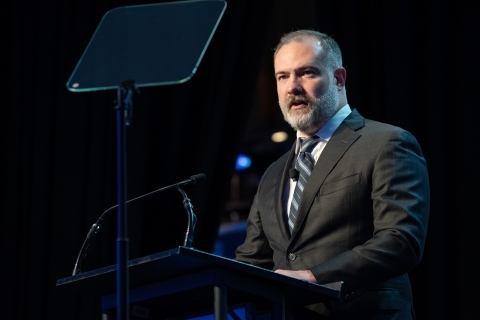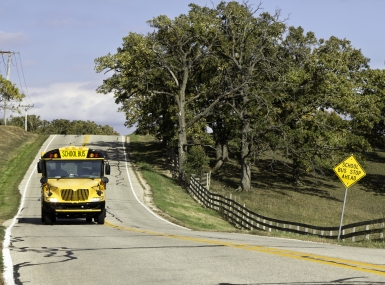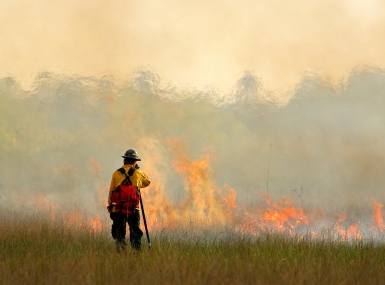DOI deputy touts IIJA benefits for public lands

Key Takeaways
In his second stint at the Interior Department, now-Deputy Sec. Tommy Beaudreau feels a tremendous responsibility to help counties face their current challenges. He previously served as chief of staff to Sec. Sally Jewell during the Obama administration.
Those challenges include drought, wildfire, crumbling infrastructure and devastation from extreme storms.
“These are national-level challenges that defy political boundaries and yet, every county feels the stress and needs to have the resources to serve their constituents,” he said during the Feb. 14 General Session. “Something we all have in common is that we care about results and we want to deliver for the people we serve.”
He described the programs financed by the Infrastructure Investments and Jobs Act, including $28.1 billion to help states plug orphan oil and gas wells and recover abandoned mine lands, restore critical habitat, address drought through water delivery infrastructure, assist with wildfire management and help communities prepare for extreme weather events.
“There’s no better feeling than to be able to give these communities a shot in the arm, and we’ll be doing it every year for 15 years thanks to the bill,” he said.
Addressing wildfire risk in the West will include $1.5 billion for forest restoration, fuels management and post-wildfire restoration activities across the National Park Service and $8.3 billion for water and drought resilience, water efficiency, recycling and rural water projects.
“These are the types of projects that are possible with this once-in-a-lifetime investment to help communities navigate the broad range of funding available to the president’s bipartisan infrastructure law, we need to work together on technical assistance and providing a guideline and handbooks for how to access these funds.”
He said the Interior Department will be in contact with state, county and local governments and other stakeholders regarding the practical considerations of accessing grant funding and provide project support.
“We want to work with you on how to provide technical assistance to access this funding,” Beaudreau said. “This is a major conversation happening right now across the federal family, and with our state, local and tribal partners, we do not want any communities left behind.”

Attachments
Related News

Secure Rural Schools Reauthorization Act of 2025 signed into law in victory for counties
On December 18, 2025, President Trump signed the Secure Rural Schools Reauthorization Act of 2025 (P.L. 119-58) into law. The reauthorization of the SRS program is a major victory for counties and ensures that timber-dependent counties will receive critical funding to maintain essential local government services such as public education and transportation infrastructure.

DOI announces creation of new U.S. Wildland Fire Service
On September 15, the U.S. Departments of the Interior (DOI) and Agriculture (USDA) announced major joint directives to change how the agencies will coordinate and provide wildfire response, including the creation of a new U.S. Wildland Fire Service within Interior.

U.S. House of Representatives passes SPEED Act and other permitting reform bills
On December 18, the U.S. House of Representatives passed the SPEED Act (H.R. 4776). The SPEED Act would strengthen county involvement in decision-making and make needed commonsense reforms to the federal environmental review process.
